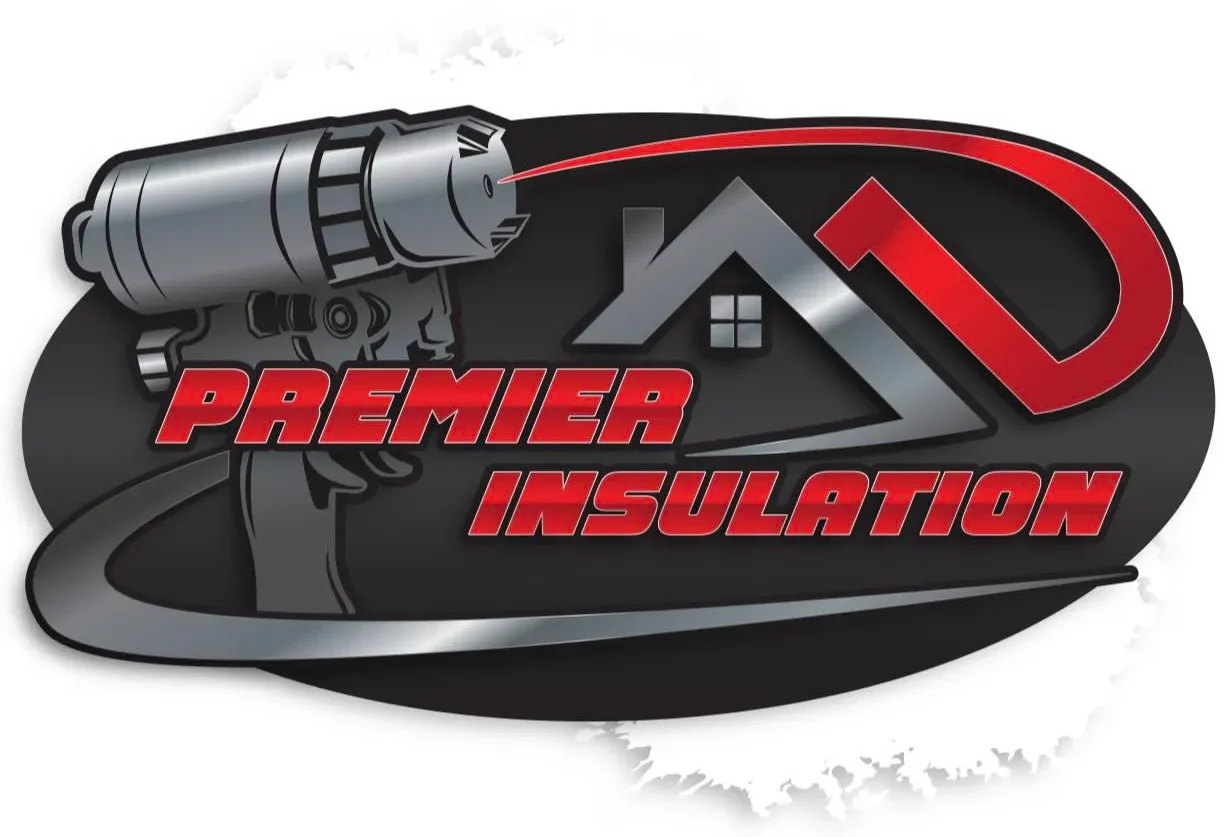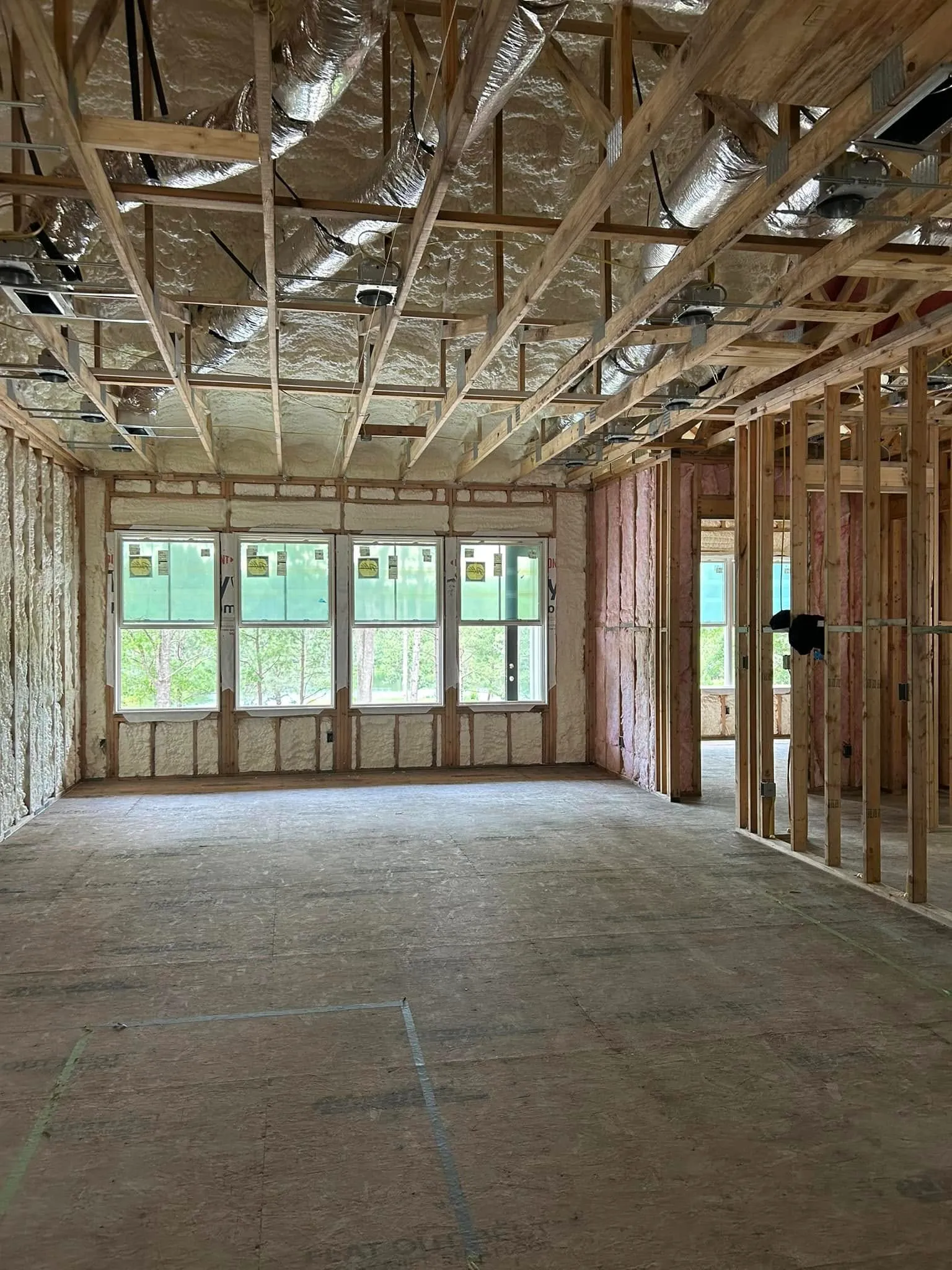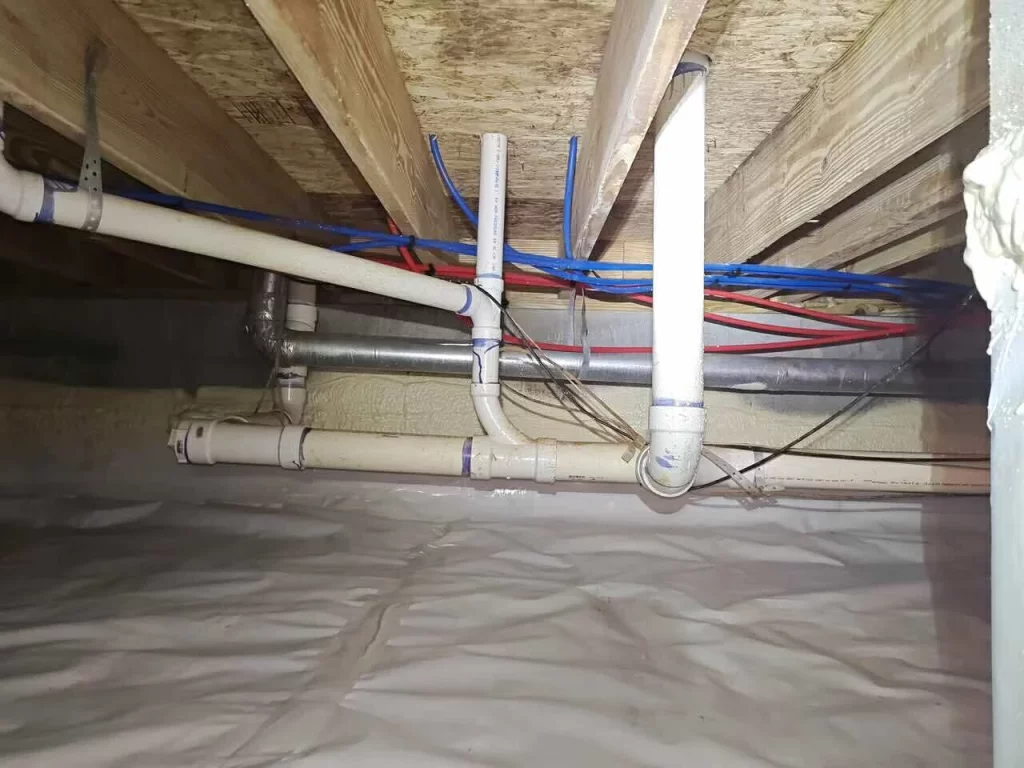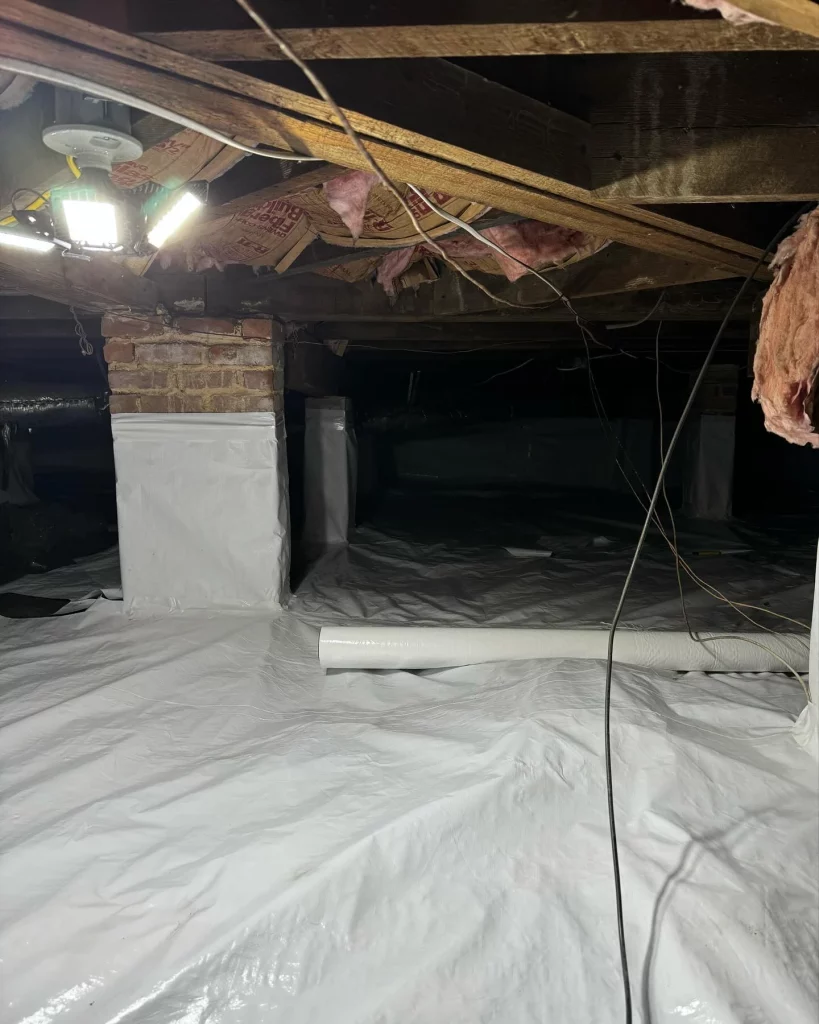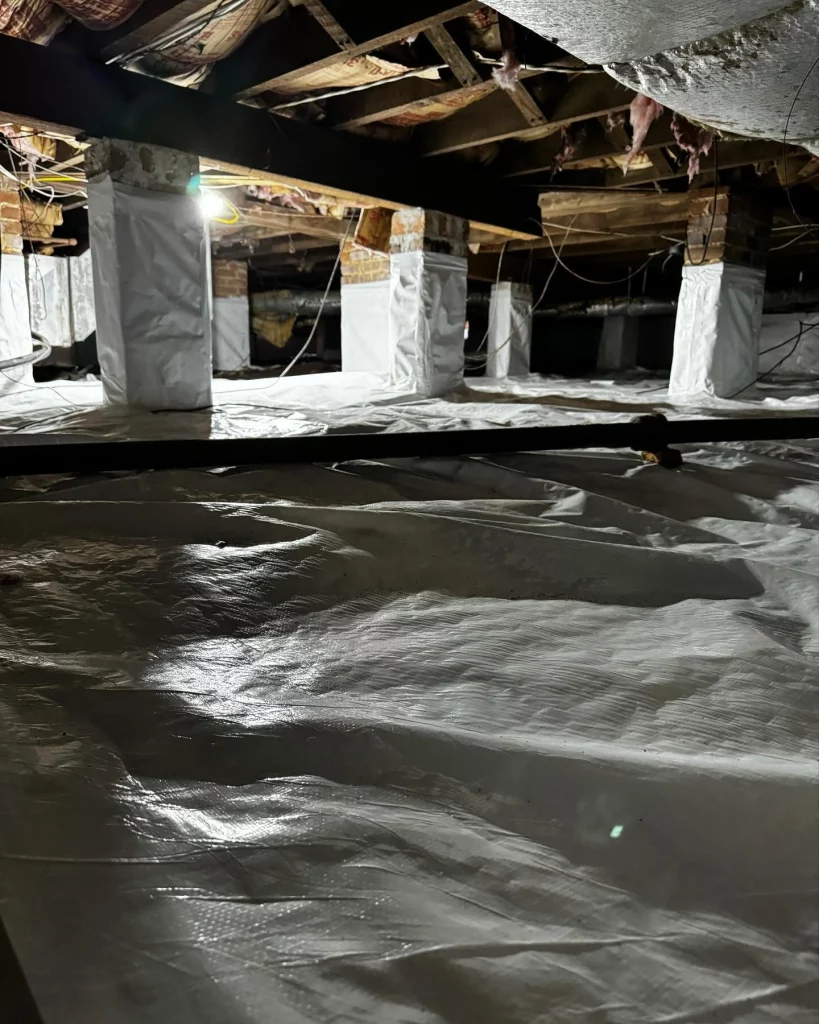For homeowners in Adel, Georgia, the most effective time to install spray foam insulation is during the fall and spring months. The moderate temperatures and lower humidity common during these seasons create the best conditions for the foam to cure properly, ensuring maximum R-value and long-term performance. While installation is possible year-round, these milder periods eliminate the challenges posed by extreme heat, cold, and moisture.
This guide provides a detailed look at how South Georgia’s climate affects spray foam application season by season. Understanding these factors will help you schedule your project for the most efficient and effective results. As a specialized contractor in the region, Premier Insulation GA has extensive experience navigating the local climate to deliver high-quality insulation outcomes regardless of the calendar.
Why Seasonal Conditions Matter for Spray Foam Application
Spray foam insulation is created through a chemical reaction between two liquid components. For this reaction to occur correctly, environmental conditions like ambient temperature and humidity must be within a specific range. When conditions are ideal, the foam expands fully, adheres properly to surfaces, and cures into a durable, effective air barrier. The Spray Polyurethane Foam Alliance reinforces this, stating that contractors must adhere to the manufacturer’s specific environmental requirements for temperature and humidity to ensure the material performs as intended.
According to an article from General Coatings Manufacturing Corp., the temperature of the surface being sprayed, known as the substrate, is just as important as the air temperature. If a surface is too cold, the foam may not stick correctly or cure to its intended density. Conversely, excessive heat and humidity can alter the reaction, potentially affecting the foam’s structure and insulation properties. An experienced installer knows how to manage these variables, but starting with favorable weather makes the process smoother.
A Seasonal Breakdown for Adel, GA
Adel’s climate shifts significantly throughout the year, with hot, humid summers and mild, occasionally cool winters. Here’s how each season impacts a spray foam project.
Fall (September – November): The Prime Time
Fall is widely considered the best season for spray foam installation in South Georgia. The weather is typically predictable and mild.
- Advantages: Temperatures usually stay within the ideal 50°F to 80°F range. Humidity also drops significantly after summer, creating a perfect environment for the foam to cure correctly. Additionally, your HVAC system won’t be working overtime, which is helpful since it needs to be turned off during the application process.
- Disadvantages: This is a popular time for home improvement projects, so contractor schedules can fill up quickly.
Bonus Tip: Scheduling your installation for early fall helps you prepare your home for winter energy savings before the first cold front arrives.
Spring (March – May): A Strong Contender
Spring offers conditions very similar to fall, making it another excellent choice for scheduling your insulation project.
- Advantages: Temperatures are once again moderate, and humidity levels are generally low. Insulating in the spring prepares your home for the intense summer heat, helping you reduce cooling costs from day one.
- Disadvantages: Spring can bring unpredictable rain, which may cause scheduling delays for projects involving exterior walls or new construction. Adel’s heavy spring pollen can also be a factor, as surfaces must be perfectly clean for the foam to adhere.
Winter (December – February): Possible with Precautions
While not ideal, installing spray foam in the winter is entirely feasible with a professional crew.
- Advantages: Contractors are often less busy during these months, offering more scheduling flexibility.
- Disadvantages: Colder temperatures, especially those below 40°F, require special measures. The installation crew may need to use heaters to warm the substrate and the spray foam equipment to ensure a proper reaction. This can add time and complexity to the job.
Summer (June – August): The Most Challenging Season
Summer presents the most difficult conditions for spray foam installation in Adel due to high heat and oppressive humidity.
- Advantages: It can still be done by a skilled team that knows how to manage the climate.
- Disadvantages: High humidity is the main concern, as excess moisture in the air can affect the foam’s chemical mixture and curing process. Work must be done in well-ventilated areas, and the physical demands on the installation crew are high. Projects may need to be scheduled for early mornings to avoid the peak afternoon heat.
Comparing Seasonal Installation Factors
This table breaks down the key variables for each season in Adel, GA.
| Factor | Fall | Spring | Winter | Summer |
|---|---|---|---|---|
| Temperature | Optimal | Optimal | Requires Management | Requires Management |
| Humidity | Low | Low to Moderate | Low | High |
| Curing Efficiency | High | High | Good (with heating) | Moderate (with controls) |
| Contractor Availability | Moderate | Moderate | High | Moderate |
Things to Consider Before Making a Decision
Before you book your installation, think about these factors:
- Your Project Timeline: If your insulation is part of a larger renovation or new construction project, the overall schedule will be the main driver. Coordinate with your general contractor to find the best window.
- Contractor’s Expertise: Always ask a potential contractor about their experience installing spray foam in South Georgia’s climate year-round. An experienced team will have the right equipment, like heaters and ventilation systems, to handle any weather-related challenges.
- Budget: The base cost of materials and labor typically doesn’t change by season. However, winter installations that require auxiliary heating might have slightly different costs associated with the extra equipment and time.
- Type of Spray Foam: Both open-cell and closed-cell spray foams have optimal temperature ranges. The U.S. Department of Energy notes that the installation requirements can differ, so discuss which product is right for your home and how the season might affect its application. Your contractor can provide the best recommendation for your specific situation.
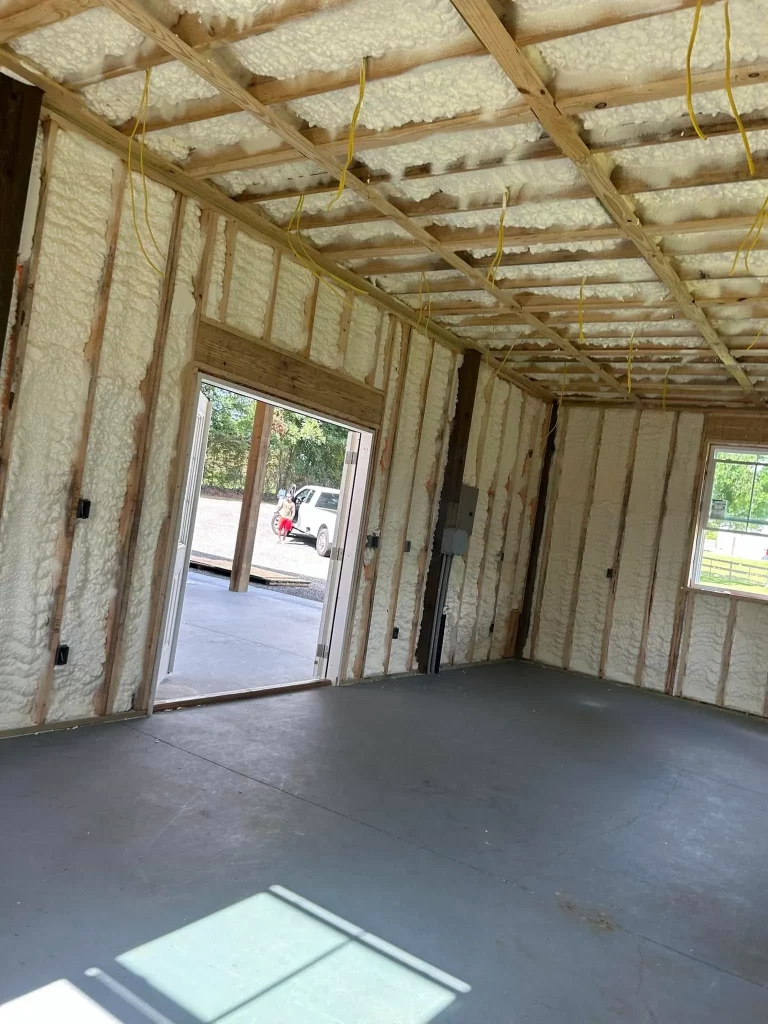
Planning Your Adel Insulation Project
Ultimately, while fall and spring offer the smoothest conditions for installing spray foam insulation in Adel, a qualified and well-equipped contractor can achieve excellent results any time of year. The most important factor is not the season but the skill of the installation team. By understanding how the local climate impacts the process, you can work with your contractor to schedule a time that best fits your project’s needs and ensures a successful outcome.
Get a Professional Assessment
The best way to determine the right timeline for your spray foam insulation project is to get an expert opinion. A professional assessment will account for your home’s specific needs, the current conditions, and your overall project goals. For a detailed consultation in the Adel area, contact Premier Insulation GA at (229) 554-3939 to discuss your project.
Sources
- Spray Polyurethane Foam Alliance – This technical bulletin provides industry-standard environmental guidelines for the application of spray polyurethane foam.
- General Coatings Manufacturing Corp. – This article explains how cold weather impacts the application and curing of spray foam insulation.
- U.S. Department of Energy – This resource provides general information on spray foam insulation types and installation considerations from a federal authority on energy efficiency.
Key Technical Questions Answered
How does Adel’s humidity affect the installation process?
High humidity can introduce excess moisture into the chemical reaction, which may affect the foam’s cell structure and density. Professional installers monitor humidity levels and use climate control equipment to ensure the work area meets the manufacturer’s specifications.
Will installing in winter cost more than in the fall?
Not necessarily. While there might be minor additional costs if extensive heating is required to warm the substrate, these are often balanced by more flexible scheduling options available during the slower season.
What is the ideal temperature range for applying spray foam?
Most spray foam products perform best when the ambient air and substrate temperatures are between 50°F and 80°F. Manufacturers provide specific guidelines that professional installers follow closely.
How long after installation can I use the space?
Generally, you can re-enter the treated area 24 hours after the installation is complete. This allows the foam to fully cure and the space to be thoroughly ventilated, ensuring the air quality is safe.

